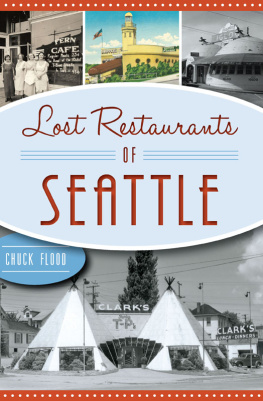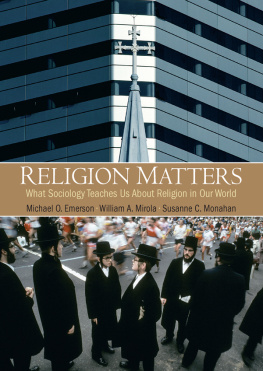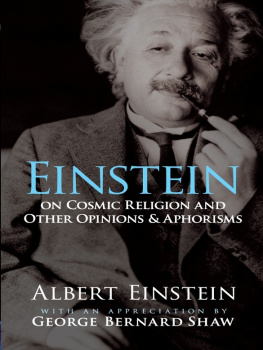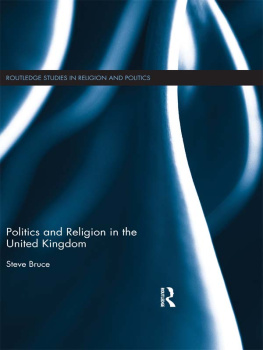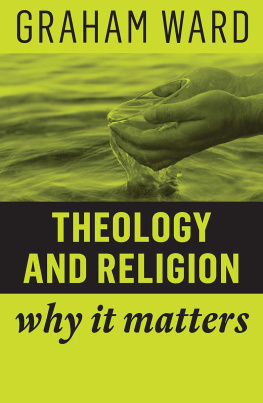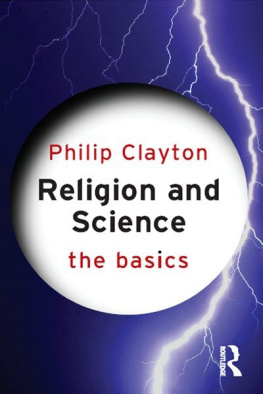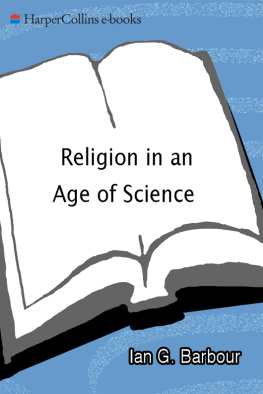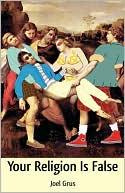This edition first published 2012
2012 Gavin Flood
Blackwell Publishing was acquired by John Wiley & Sons in February 2007. Blackwell's publishing program has been merged with Wiley's global Scientific, Technical, and Medical business to form Wiley-Blackwell.
Registered Office
John Wiley & Sons Ltd, The Atrium, Southern Gate, Chichester, West Sussex, PO19 8SQ, UK
Editorial Offices
350 Main Street, Malden, MA 02148-5020, USA
9600 Garsington Road, Oxford, OX4 2DQ, UK
The Atrium, Southern Gate, Chichester, West Sussex, PO19 8SQ, UK
For details of our global editorial offices, for customer services, and for information about how to apply for permission to reuse the copyright material in this book please see our website at www.wiley.com/wiley-blackwell .
The right of Gavin Flood to be identified as the author of this work has been asserted in accordance with the UK Copyright, Designs and Patents Act 1988.
All rights reserved. No part of this publication may be reproduced, stored in a retrieval system, or transmitted, in any form or by any means, electronic, mechanical, photocopying, recording or otherwise, except as permitted by the UK Copyright, Designs and Patents Act 1988, without the prior permission of the publisher.
Wiley also publishes its books in a variety of electronic formats. Some content that appears in print may not be available in electronic books.
Designations used by companies to distinguish their products are often claimed as trademarks. All brand names and product names used in this book are trade names, service marks, trademarks or registered trademarks of their respective owners. The publisher is not associated with any product or vendor mentioned in this book. This publication is designed to provide accurate and authoritative information in regard to the subject matter covered. It is sold on the understanding that the publisher is not engaged in rendering professional services. If professional advice or other expert assistance is required, the services of a competent professional should be sought.
Library of Congress Cataloging-in-Publication Data
Flood, Gavin D., 1954
The importance of religion: meaning and action in our strange world / Gavin Flood.
p. cm.
Includes bibliographical references and index.
ISBN 978-1-4051-8972-9 ISBN 978-1-4051-8971-2 (pbk.)
1. ReligionPhilosophy. I. Title.
BL51.F555 2012
210dc23 2011026338
A catalogue record for this book is available from the British Library.
This book is published in the following electronic formats: ePDFs 9781444399035; ePub 9781444399042; Mobi 9781444399059
For Kwan
Hat man sein warum? des Lebens,
so vertrgt man sich fast mit jedem wie?
He who has a why to live for,
can stand almost any how.
(Nietzsche, Die Gtzen Dmmerung (1889),
Sprueche und Pfeile 12)
Preface
A prevailing idea from the Enlightenment, still with us today, is that the light of reason would dispel the darkness of religion and reveal the universe to us. While the desire for enlightenment and the attendant aspiration for a better human future are commendable, the identification of religion with darkness and ignorance is problematic. Religion has not gone away and is a topic of deep concern both because of its destructive capacity most conflicts in the world have a religious component and for its constructive capacity as a resource that gives people truth, beauty, and goodness. While secularization has developed in the West, this has not heralded the demise of religion. Christianity may be in decline in northern Europe but is expanding in Africa and the Americas. Islam is expanding in Europe and it is not inconceivable that it will be the majority religion in Europe in the course of time. With the demise of communism in Russia and Eastern Europe and the transformation of communism in China, religions are developing in those countries, both new religions and reinvigorated old religions, Orthodoxy in Russia, Buddhism and Taoism in China. In some western societies we also have the enhancement of privatized, individual spirituality linked with a quest for authentic experience and the true self.
This book is written in the context of these developments and in view of the persistence of religion in modern times. This is not a survey of religions or the contemporary religious field, of which there are plenty of fine volumes, nor is it a defense of religion as such, but is intended to develop new vocabularies and theoretical perspectives for the study of religion. It claims that the importance of religion is existential; religions provide significant meaning to life and guide people in their choices and practices.
Religions are not primarily propositions about the nature of reality, although they can be that, but ways of living and dying, ways of choosing a good life and guiding judgments about moral choice. Through actions the ways of life that we call religions mediate the human encounter with mystery. The world is a mysterious place, which scientific accounts do not exhaust but rather serve to add to its mystery. Religions show us ways of inhabiting our strange world that are transformative for individuals and for communities as a whole. Religious people in the modern world balance commitments to the secular public sphere from voting in elections to educating children with commitments to particular religious communities. This book attempts to describe the ways in which people are religious and to analyze the ways of being religious under the guiding thesis that religions are existentially important in providing people with meaning. While religions are, of course, important for macro-history, as large social and cultural forces moving through time, the argument here is that their primary importance lies in their significance for human persons in their communities.
The book is written broadly from within a phenomenological intellectual tradition, but a kind of phenomenology that is dialogical. It is also influenced by other intellectual traditions, particularly what might be called critical social science and what has come to be known as post-critical theology (theology chastened by postmodern critique). I tend to avoid the term postmodern, which now has limited usefulness, although this book is written in the wake of that great intellectual flurry and energy even though some of its results were eccentric. But it seems to me that the ultimate questions that religions deal with (why is there something rather than nothing? who am I? what is the purpose of our life?) and their meaning in people's lives necessitates an approach that is both detached (and so attempts accurate description) and intellectually committed to truth (and so attempts accurate evaluation). The general orientation of this phenomenology is towards the world and this approach shows us that religions are fundamentally about how we are or should be in the world: they are about action, the repeated actions of the liturgical moment through history, the repeated actions of the ascetic life, and the unrepeatable moral actions of social being.
Because of the impossibly vast nature of the topic, I have dealt with some of these complex issues at a fairly theoretical level, bringing in concrete examples to illustrate points. Giving an account of religion in terms of subjective meaning takes us into a number of subject areas, including cultural anthropology, linguistic anthropology, philosophy, and theology. I hope that the reader will find application for the ideas and general argument presented here in their own contexts. Frits Staal speculates that the centre of civilization will return once more to China and India. This is probably an accurate prediction and while few predictions of the future prove to be correct, I think it safe to say that religions will continue to thrive, continue to endow lives with meaning, and will contribute to global, social, and climatic challenges facing the world. The new world citizen can also be a religious citizen.


